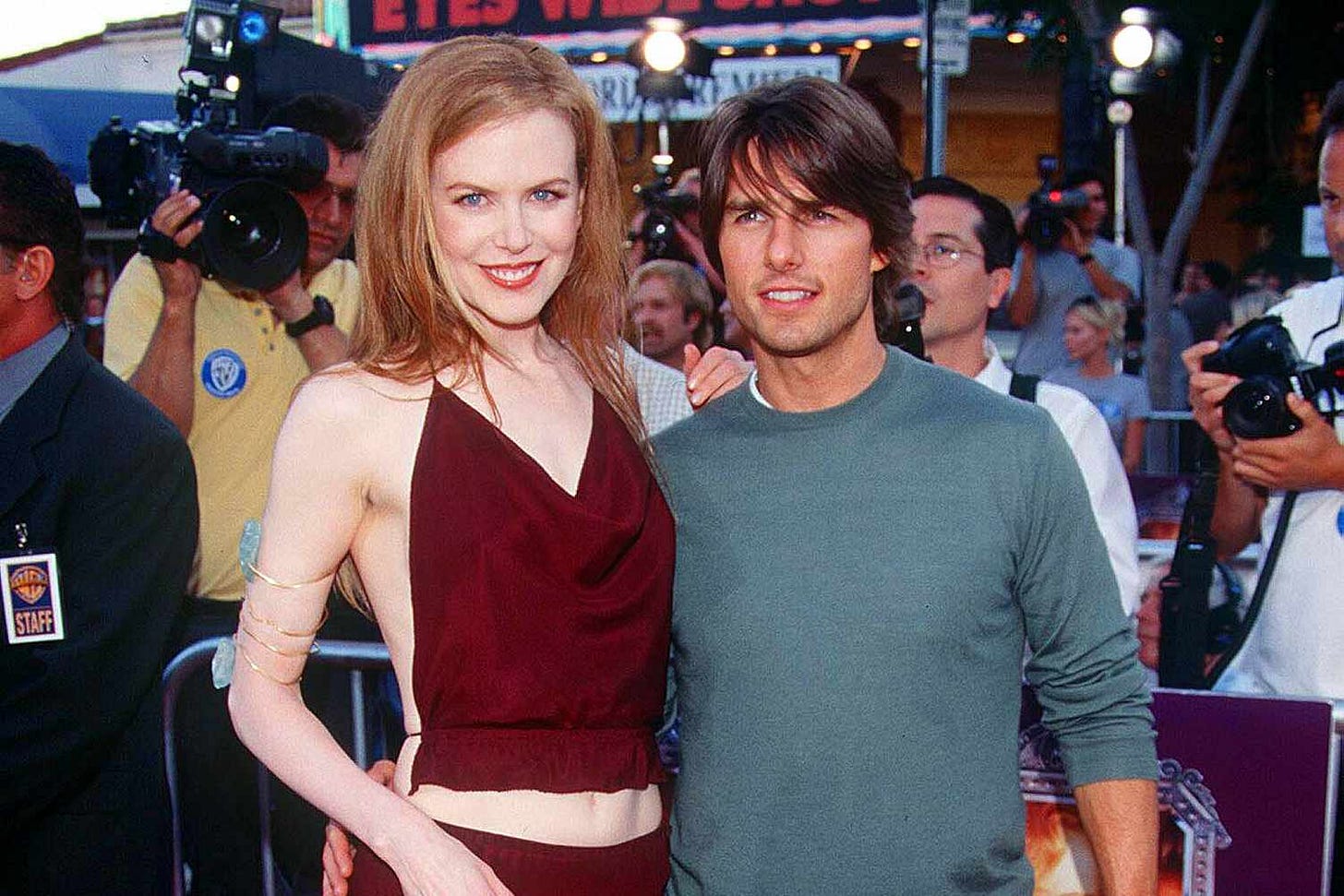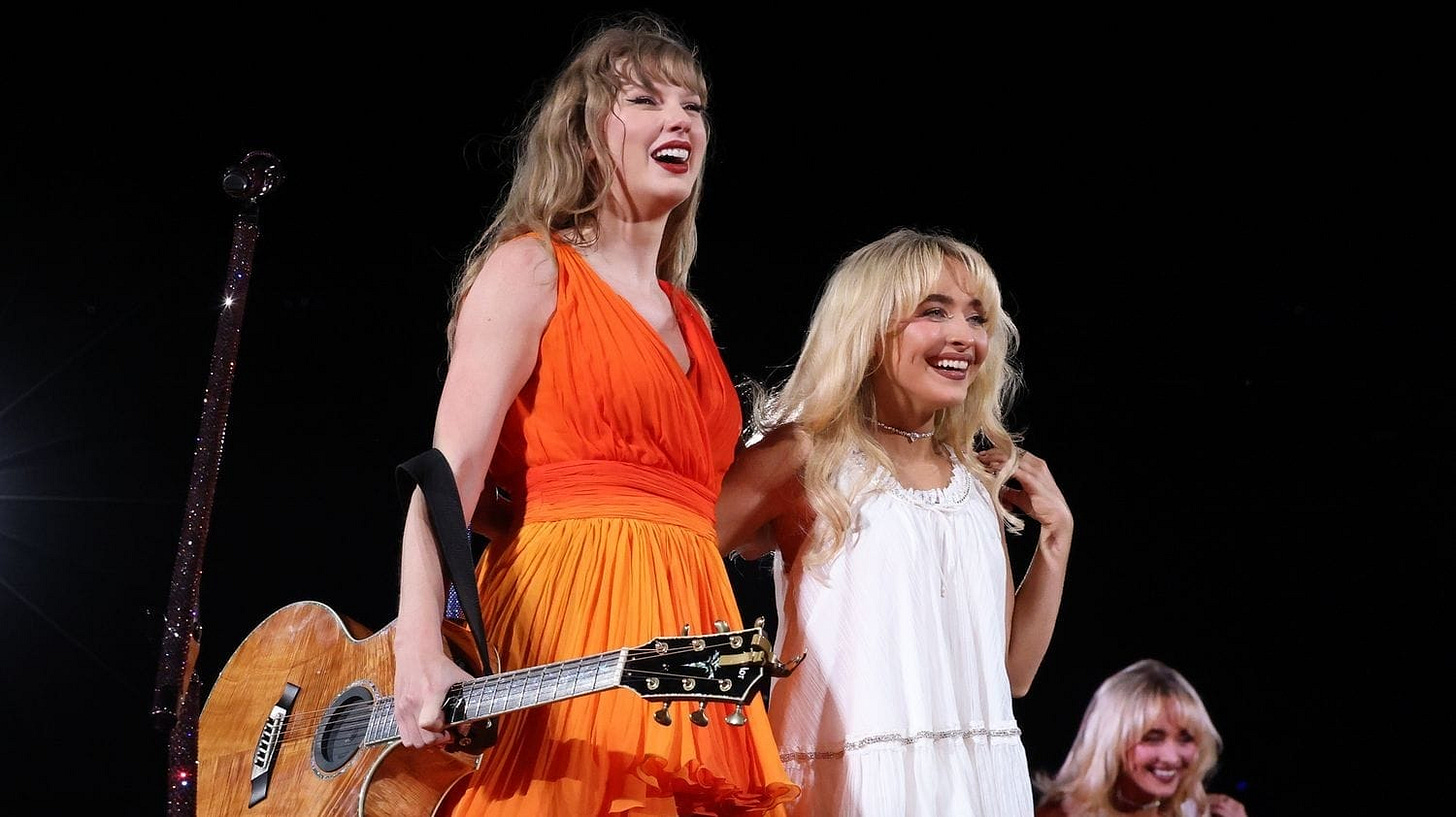Most days, I’m rather unaware of my height. I work from home, I don’t interact with people in an office. I rarely meet new people, save the baristas at the coffee shops I write at. And for this reason, most days, I feel pretty comfortable in my body - I feel pretty at peace.
Other days, I’m made quite aware of myself. I become quite cognizant of my physical body and how much space it takes up relative to other women. On these days, I typically feel pretty fine too. But I do have my moments.
Take my most recent ballet class, for instance. In ballet, every person is craning towards some mythical perfect form, either slightly taller and broader or more petite and contained, but always different from the way you were born. For me, ballet has always been a project in figuring out how to organize my limbs. I am five feet and eight inches and about forty of those inches are my legs. If I meet someone while I’m sitting down, their eyes will widen upon me rising to my feet, materializing several feet out of thin air.
In this particular ballet class, I was sharing the ballet barre with two girls who couldn’t have been over 5’2” - rendering me gargantuan in comparison. But I don’t compare myself - at least not anymore. I’m twenty-four years old, and at this age, you’re expected to make peace with things like your height (it’s not like there’s a viable medical procedure to get it fixed anyway). And besides, the goal in ballet is typically to “elongate” oneself, making my height an advantage.
As we performed our combinations at the barre, the instructor gave us gentle corrections - telling my two barre companions to lengthen through their spines, imagining themselves taller than they are. And then he approached me and encouraged me to bend my elbows in my “high fifth” position - as my arms appeared too long in their current configuration. This was a peculiar correction - one I don’t typically receive. For so long, I had attempted to shrink in ballet class, rounding my shoulders and curving my neck downwards so I stuck out less - my teachers and parents had long encouraged me to sit up straight and appear confident and proud. Use your height to your advantage. It appears I had grown too greedy.
“Height and gender” is a precarious conversational topic, as there are fierce emotions on all sides of the issue. If we stay within the confines of the Western gender binary and heterosexual relationship composition, we’ll find that men and women often have stringent height preferences, or rather, height expectations. Specifically, the man in the relationship should be tall and the woman should be short - or at least, shorter than the man. From this expectation, the “Napoleon complex” or “short-man syndrome” sprouted - the belief that short men can exhibit overly aggressive or domineering behavior to compensate for their lack of height. Any time I hear a car engine rev or a male voice shouting at a bartender for cutting him off, I’m quick to assume the perpetuator’s height - even though I know it’s just a stereotype.
You would think that “short-man syndrome” would have a feminine counterpart - “tall-woman syndrome" - but no such phenomenon exists. An easily upset short man is low-hanging fruit (no pun attended) - easy to joke about, given that men ultimately still have the upper hand living in a patriarchal society. Tall women, however, are a sore subject - elephants in the room. Bumps in the conversational road, worth veering around.
I come from a primarily Dutch family, so at 5’8,” I’m not even that tall, especially compared to most of my relatives. I’m only tall around short people, which the universe keeps sending me as friends. I hit this height towards the end of sixth grade and as such, was the tallest girl at my middle school and probably the third tallest person overall. But before that, I still stuck out like a sore thumb in elementary school and carried the tall girls’ burdens with me. I struggled to find jeans that went all the way down to my ankles. I was relegated to the role of “Dad” when playing “house” at recess. And I found myself to be really good at athletics - the fastest girl in class, the best at basketball - which was great if you wanted to get a high grade in physical education, but not so great if you wanted a boy’s romantic attention, which is just about all I wanted. Elementary-aged boys aren’t attracted to girls that are taller and faster than them, typically.
As a rapidly growing, athletic person, I also found myself having a significant appetite - at the time, it seemed like I could eat two to three times that of my girl peers. I was always hungry. I remember a five-foot friend of mine asking why I always ate so much at lunch. I began taking smaller bits and eating throughout the day so nobody would notice.
As the end of eighth grade neared, I had, melodramatically, resigned myself to the fact that I would probably never fall in love and felt at peace with that. I watched the adorable petite girls in my class running around the field after school like pixies, careening down the green grass, cartwheeling around the Pacific madrone trees, and felt jealous of how eccentric they could be. At 5’5“ and below, a girl was small enough to afford some zaniness and brashness - some energy expenditure. At my height, I was already drawing enough attention. I kept quiet.
But in high school, out of defiance I guess, I started wearing boots with two- to three-inch heels to class. I was constantly waiting for someone to tell me I was too tall to be wearing heels, buzzing with anger, and nearly jumped out of my chair when someone finally remarked on it, thrilled to get to tell them off. “Why are you wearing heels? You’re already so tall,” boys and girls would ask me. “Because I want to,” I would snap back aggressively.
I had developed a kind of angry, reactionary confidence, and I suppose this suddenly made me attractive to boys and men alike. All of this somehow made me even more angry, so I didn’t bother giving anyone the time of day. I went from being an honorary boy to a kind of wild, young thing to be captured. On occasion, I got approached and cat-called by college-aged boys and adult men and received crude text messages from upperclassmen. I almost wished I could have my undesirability back.
The tall woman’s plights must be discussed with sensitivity, but they’re rarely handled that way (see: Tall Girl (2019)). This is because there are actual material benefits to being a tall woman. Research shows that tall women tend to be rated as more “intelligent, affluent, assertive, and ambitious than shorter women” and often better at their jobs due to tall stature being more closely linked with masculinity. In addition, while petiteness is more closely associated with femininity, tallness remains the standard among runway models, who occupy a more avant-garde kind of beauty ideal. When one is taller, they’re also perceived to be less vulnerable to physical threats.
Short women, undeniably, face their one subset of challenges in this world - both in terms of physical safety and self-perception. Many short friends of mine have told me stories about being in public situations that felt unsafe and their stature exacerbating the feeling of danger. Shortness is also associated with youthfulness - making it challenging for many short women to feel like people are taking them seriously, especially in positions of authority. Short women also face similar challenges as tall women in terms of sexual desirability, being seen as asexual and kiddish on one side of the coin and made into a fetish on the other.
In her thesis exploring identity in tall women, Elizabeth Joy Fuller speaks to the socially constructed traits attributed to behaviors performed in “masculine”- and “feminine”-presenting bodies, respectively. Masculinity is conveyed in actions that are strong, capable, and functional, whereas femininity is marked by a level of dysfunction and helplessness. She writes:
“Where men are portrayed as having powerful bodies, women are often portrayed as having dysfunctional bodies, or bodies that lack power. Tallness presents an interesting dilemma in the construction and production of femininity because tallness is traditionally associated with power, prestige, able-bodied vitality, and most importantly, masculinity.”
It can be easier to navigate a world designed for men when you are similar in height and build to a man. I never struggle to put my luggage in the overhead bin on an airplane. I never need help grabbing something off a high shelf. I always have a clear line of sight at general admission concerts. I can carry all my groceries up the stairs in one trip. I don’t require much practical day-to-day help - I am rarely a damsel in distress. Which is great. But, on occasion, can make me feel like less of a woman.
It’s a complicated predicament to face as a woman - feeling too self-sufficient. And always this sense of guilt for appearing as you are - for taking up more space than expected. Fuller found that excessive height in girls can be pathologized, driving parents to seek out hormonal treatments to stunt growth. Fuller also interviewed several women above 5’11” to learn about their particular experiences. Charlie (6’1”) shared:
“I always have to remember not to move. When I’m excited, I can’t fling my arms around. When I’m angry, I have to limit how I pace, because women don’t walk like that. I can’t just spin around, I can’t jump at concerts, I can’t ever move comfortably…”
It’s hard enough to be “your own voyeur,” as Margaret Atwood put it, but it’s a whole other challenge to watch others watch you exist as you aren’t supposed to. Tall women undoubtedly face less extreme - and less politicized - challenges than other groups in the United States that appear contrary to our neatly assigned identity binaries, namely transgender individuals and those with disabilities. It’s a double-edged issue to feel too “capable” in this world, to desire a degree of helplessness to feel more secure in yourself.
As an angry tall girl, I constantly asked myself who had it worse: me or the girls comparing their small hand sizes to the boys.’ What could be the problem with being so pocket-sized? Fun-sized? I resented short girls, just as I resented girls will full lips and girls with narrow hips. And confident girls and curvy girls and skinny girls and happy girls and sad girls and girls with blue eyes and girls with cool haircuts and literally every other type of girl.
I’ve grown to love what I once hated in myself, and all that, but I also learned to redirect my anger. I’m not mad at girls who look different from me, I’m mad at the pervasive value systems that made me think that this was a good way to spend my time for the last twenty-four years. The value system that picked away at my innocence, as it does to all girls - turning your friends into silent adversaries far too soon. I have an imaginary rubber band on my wrist and snap it every time I find myself caring for too long. I have much more important things to care about now so I snap it far less than I used to. But when I do, on occasion, it stings all the same.









i’ve always loved being tall 5’11, i think because it makes me feel undeniably powerful albeit it does narrow my dating pool down- i’ve been wearing extremely high heels out lately and i feel like myself most in them!!!!
When I was younger, i instinctively thought of taller women or femme presenting people as ‘tougher’ or ‘stronger’, and i wonder how much of that was me conflating height with gender and assuming that the taller a person gets, the more like a man they are. These are dumb gender assumptions that i don’t have anymore, but i find that those thoughts occasionally pop-up in dating. I’m quite tall (6’5), and something feels very traditionally gendered when i date someone who is much, much shorter. But whenever the person i’m dating is taller than average, or even approaching my height, it’s much more comfortable for me — it’s physically more comfortable, but it also subconsciously feels like we are closer or more similar. It’s weird!! I’m glad you wrote this, because i haven’t interrogated all of this in a long time.